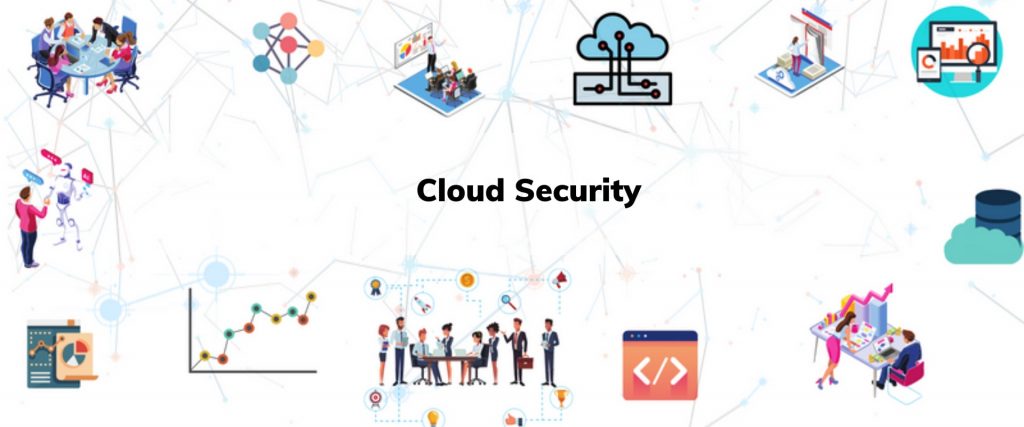Cloud security encompasses the technologies, controls, processes, and policies which combine to protect your cloud-based systems, data, and infrastructure. It is a sub-domain of computer security and more broadly, information security.
It is a shared responsibility between you and your cloud service provider. You implement a security strategy to protect your data, adhere to regulatory compliance, and protect your customers’ privacy. Which in turn protects you from the reputational, financial, and legal ramifications of data breaches and data loss.
Cloud security is a critical requirement for all organizations. Especially with the latest research from (ISC)2 reporting 93% of organizations are moderately or extremely concerned about it, and one in four organizations confirming a this security incident in the past 12 months.
A big question arises here: how does it work?
How Cloud Security Works?
Cloud security is a complex interaction of technologies, controls, processes, and policies. A practice that is highly personalized to your organization’s unique requirements.
As such, there’s no single explanation that encompasses how it ‘works’.
Thankfully, there are a widely established set of strategies and tools you can use to achieve a robust Its setup, these include:
- Identity and Access Management(IAM)
- Physical Security.
- Encryption
- Penetration Testing
- Firewalls.
Security Risk
Whether or not you’re operating in the cloud, security is a concern for all businesses. You will face risks such as denial of service, malware, SQL injection, data breaches, and data loss. All of which can significantly impact the reputation and bottom line of your business.
When you move to the cloud you introduce a new set of risks and change the nature of others. That doesn’t mean cloud computing is not secure. In fact, many such providers introduce access to highly sophisticated security tools and resources you couldn’t otherwise access.
It simply means you need to be aware of the change in risks in order to mitigate them. So, let’s take a look at the unique security risks of cloud computing.
- Loss of Visibility
- Compliance Violations
- Lack of Cloud Security Strategy and Architecture
- Insider Threats
- Contractual Breaches
- Insecure Application User Interface (API)
- Misconfiguration of Cloud Service
Why Cloud Security Required?
The mass adoption of cloud technology combined with an ever-increasing volume and sophistication of cyber threats is what drives the need for it. Reflecting on the security risks of adopting cloud technology – outlined above – failure to mitigate them can come with significant implications.
But it’s not all negative, thus, it can also offer significant benefits. Let’s explore why It is a critical requirement.
- Cyber Security Threats thus Continue to Increase.
- Preventing Data Breaches and Data Loss.
- thus, Avoid Compliance Violations.
- Maintaining Business Continuity.
- also, Cloud Security Benefits.
- Choose a Trusted Provider.
Cloud Security Benefits
Beyond threat protection and avoiding the consequences of poor practice, cloud security also offers benefits that make it a requirement for businesses. These include:
- Centralized Security.
- Reduced Cost.
- Reduced Administration also.
- Increased Reliability.
Best Practices
- Review SLA’s
- Trusted Cloud Provider
- also Train your Users.
- Strong Encryption
- thus, Secure Endpoints. Etc.
Conclusion:
Moving to the cloud, you need to be ready to implement a comprehensive cloud security strategy from day one. This starts with identifying the right cloud providers and then implementing a strategy combining the right tools, processes, policies and best practices.It is fundamental you understand your shared responsibility and focus on compliance.
In this, your staff — or your cloud provider’s — are thus among the most critical and often overlooked aspects of defense against cybercriminals. It’s important to remember that cloud computing is no less secure than deploying your services on-premises. In fact, many providers offer advanced security hardware and software you would otherwise not have access to.
Choosing the right provider will improve your security stance and reduce your risks, regardless of those introduced by computing on such service.
written by: Deepak Rathour
reviewed by: Sayan Chatterjee
If you are Interested In Machine Learning You Can Check Machine Learning Internship Program
Also Check Other Technical And Non Technical Internship Programs

